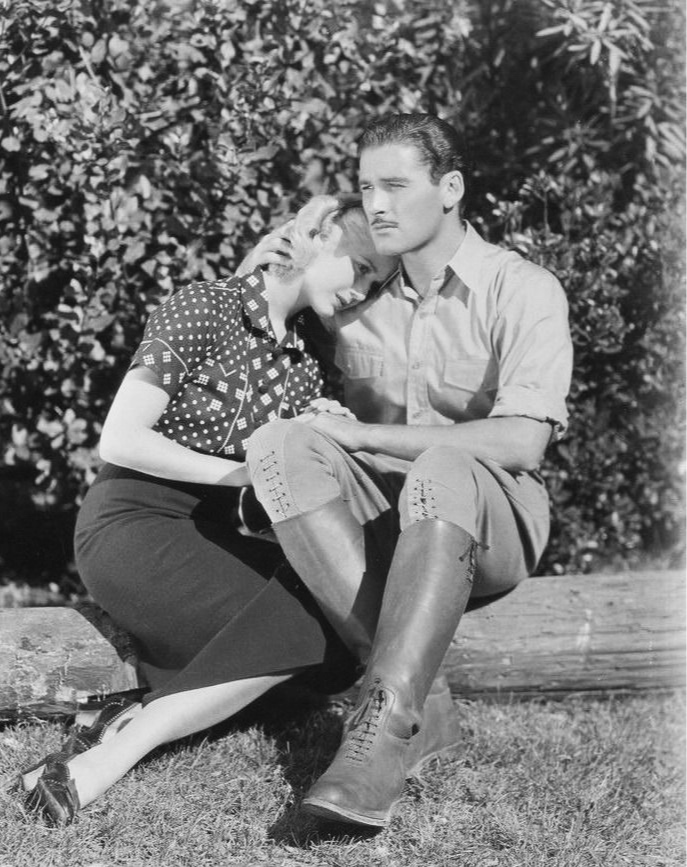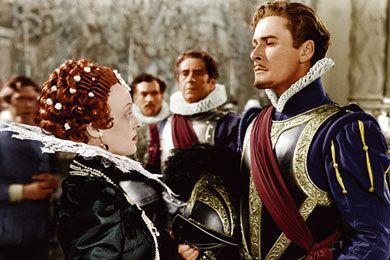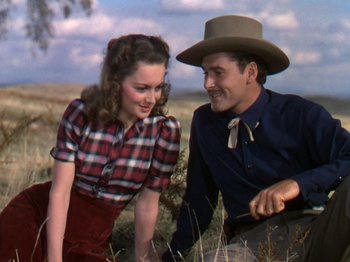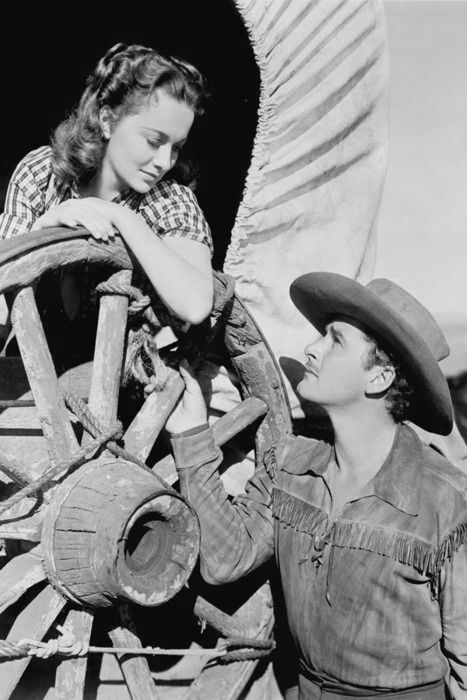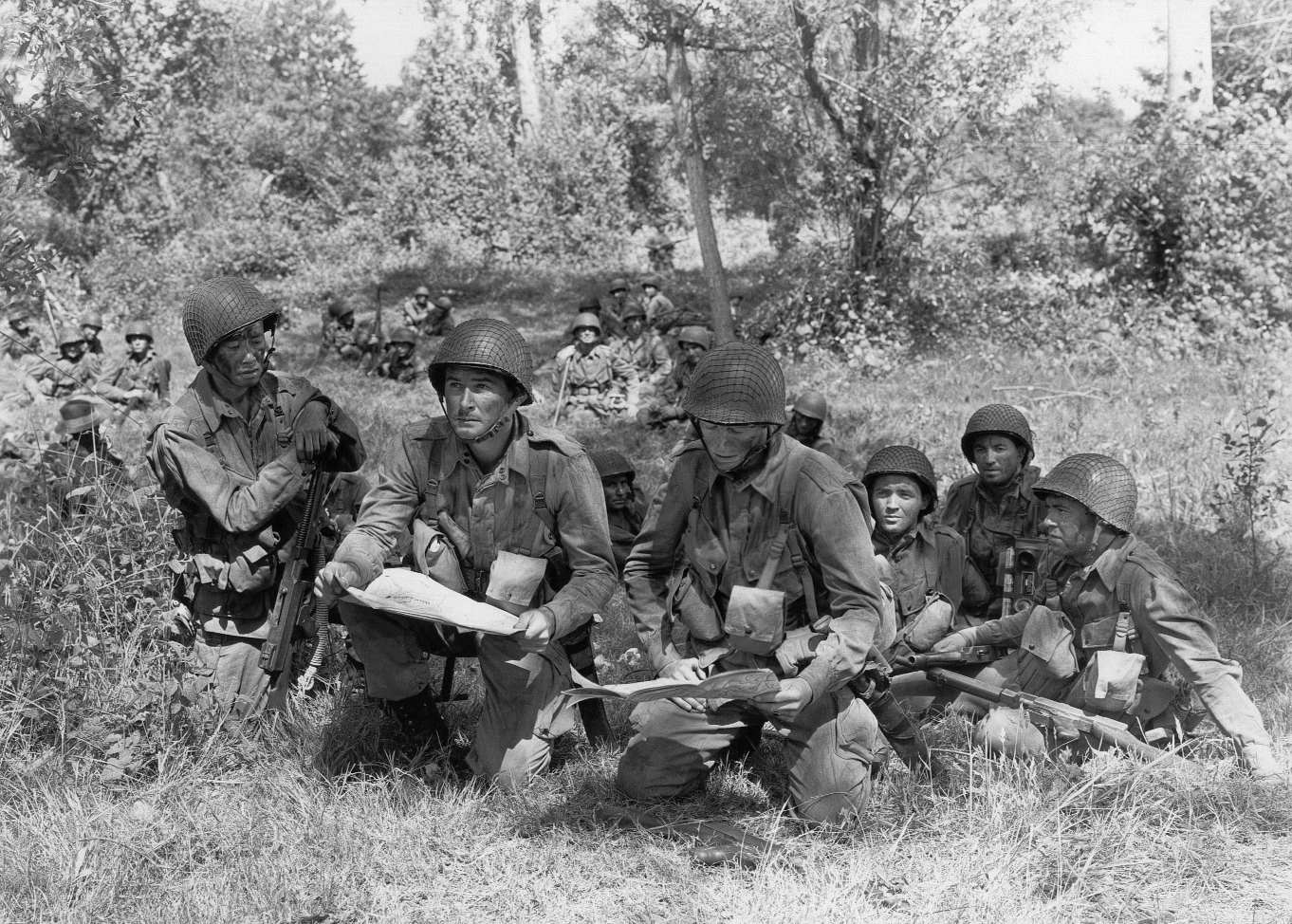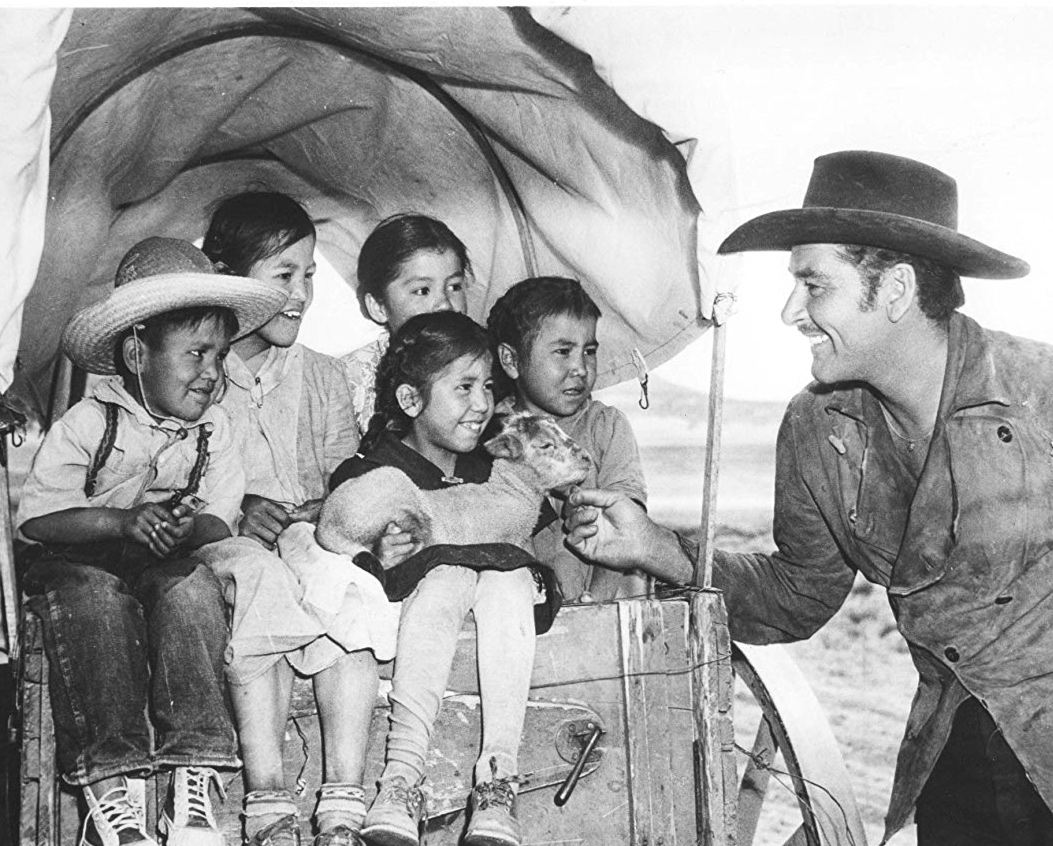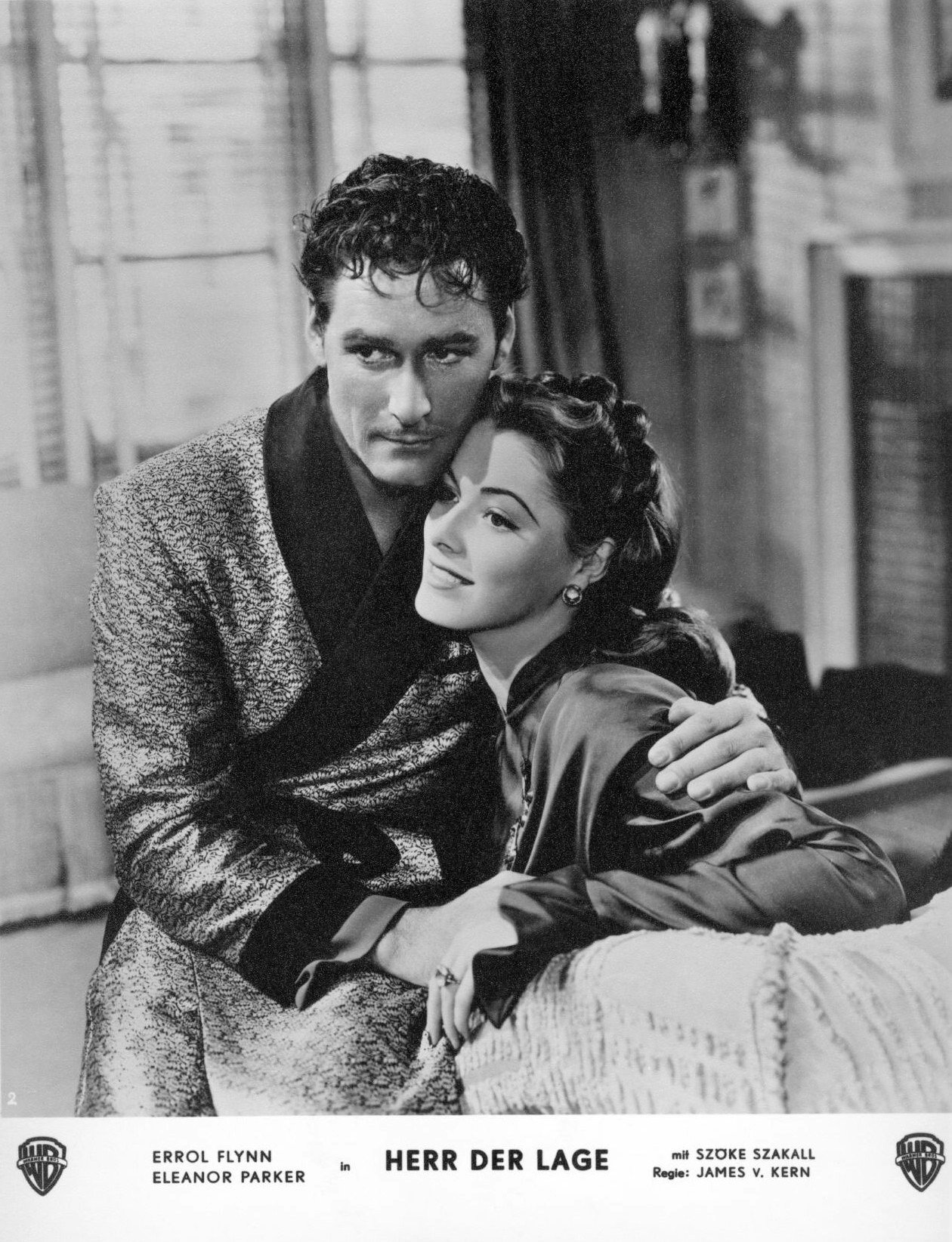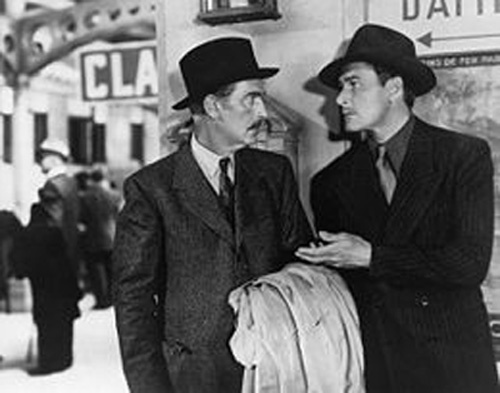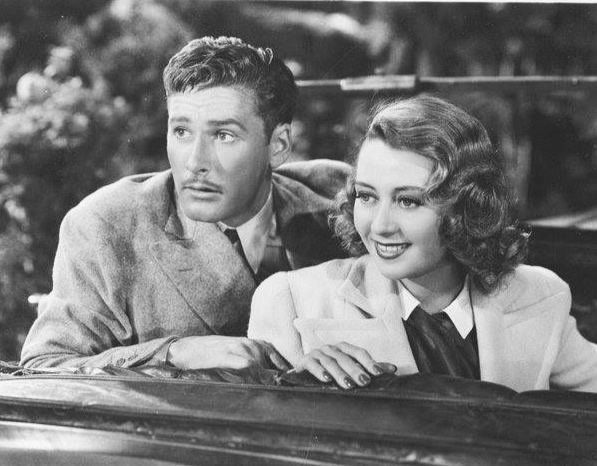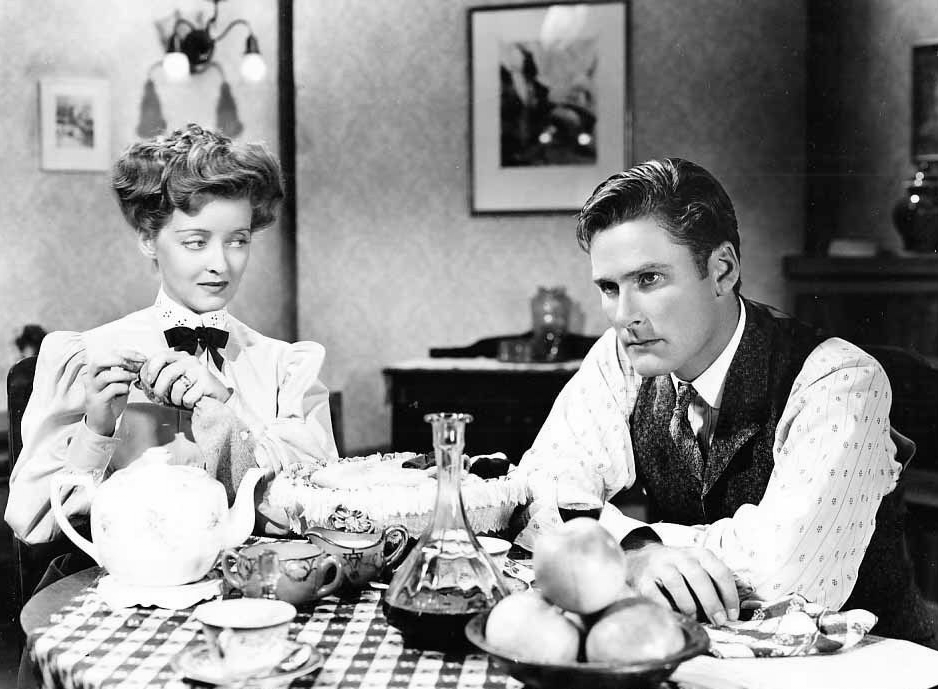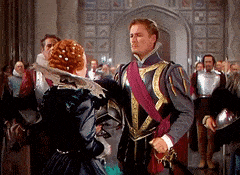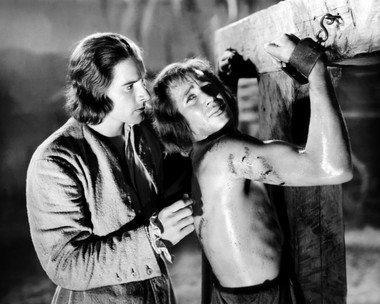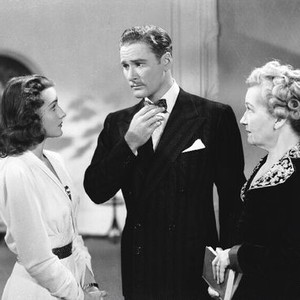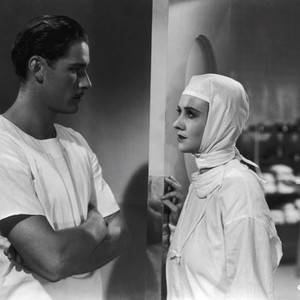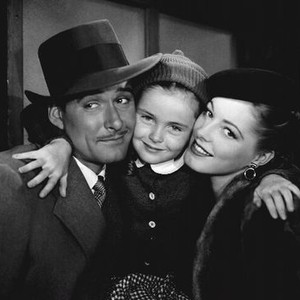Errol Flynn

Born in rugged Hobart, Tasmania, Errol Flynn was already an adventurous and raucous boy before he began his dashing career in the movies. He acquired an array of shockingly different jobs and was thrown out of most of his schools. However, Flynn’s natural verve, athleticism, and charm succeeded in eventually establishing a stable career for him - this time in pictures. He had his first film experience when he was cast to play the lead, Fletcher Christian, in the Australian picture, In The Wake of The Bounty (1933). This ignited his interest in acting, so he quickly departed for Britain and later Hollywood where he initially only played bit parts. Hollywood, however, soon took note of his self-assurance, charm and natural abilities. He quickly won the lead in the adventure drama Captain Blood (1935)- his first film alongside nine-time co-star Olivia de Havilland. This immediately propelled him into stardom. Captain Blood led to a string of successful swashbucklers that included The Charge of the Light Brigade (1936), The Sea Hawk (1940), and westerns like Dodge City (1939). These adventure films cemented him as the obvious successor to the fearless and dashing silent film star Douglas Fairbanks. He even made many similar films and played many similar roles as Fairbanks, such as Robin Hood in The Adventures of Robin Hood (1938). He also made an array of war films, dramas, and comedies, among them The Dawn Patrol (1938), The Private Lives of Elizabeth and Essex (1939), Four’s a Crowd (1938), Objective, Burma! (1945), and Never Say Goodbye (1946). His wild and sometimes scandalous life style habits, however, damaged this well-established career. The expression “in like Flynn” came to describe his less than savory choices. He continued to work but in less successful swashbucklers where he often played a drunk. This is not to say that he did not continue to be a good actor. On the contrary, his roles in The Sun Also Rises (1957) and Too Much, Too Soon (1958) won much praise, making his career somewhat more "consistent" than it otherwise would have been.
So what made Errol Flynn such a star and contributor to cinema's Golden Age? Some might say that he was just someone who starred in a couple of successful adventure films that another actor could have easily succeeded at, but this is certainly not the case. He was a leading man who made playing multi-dimensional and charismatic leaders look easy. That may be why his career is often overlooked. His performances were just so natural. I'm sure that when you watch his films, you'll find that secret ingredient hard to pinpoint as well. It may very well be that the secret to Errol Flynn was ... Errol Flynn. There hasn't been anyone like him since.
Core Films
*= my personal favorites
Captain Blood (1935)
The Charge of the Light Brigade (1936)
The Prince and The Pauper (1937)*
The Dawn Patrol (1938)*
The Adventures of Robin Hood (1938)*
Dodge City (1939)*
The Private Lives of Elizabeth and Essex (1939)*
The Sea Hawk (1940)*
They Died with Their Boots On (1941)
Gentleman Jim (1942)
Objective, Burma! (1945)*
For More
Books
Biography; Errol Flynn: The Life and Career by Thomas McNulty: https://www.amazon.com/Errol-Flynn-Career-Thomas-McNulty/dp/078646898X
Autobiography; My Wicked, Wicked Ways: The Autobiography of Errol Flynn by Errol Flynn: https://www.amazon.com/My-Wicked-Ways-Autobiography-Errol/dp/0815412509
Biography; The Baron of Mulholland: A Daughter Remembers Errol Flynn by Rory Flynn: https://www.amazon.com/Baron-Mulholland-Daughter-Remembers-Errol/dp/1425712509/ref=pd_lpo_sbs_14_img_2?_encoding=UTF8&psc=1&refRID=WHESFSQ97SQ42JPRMD62

